ETH News
All stories that have been tagged with D-BSSE
Using CRISPR to decipher whether gene variants lead to cancer
News
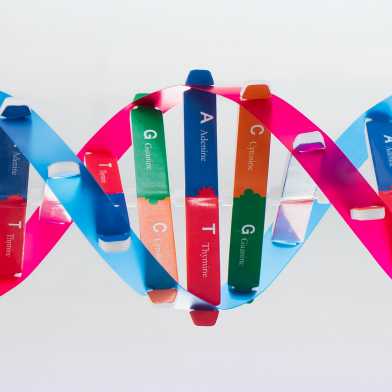
Researchers at ETH Zurich have combined two gene editing methods. This enables them to quickly investigate the significance of many genetic mutations involved in the development and treatment of cancer.
Fifteen professors appointed
News
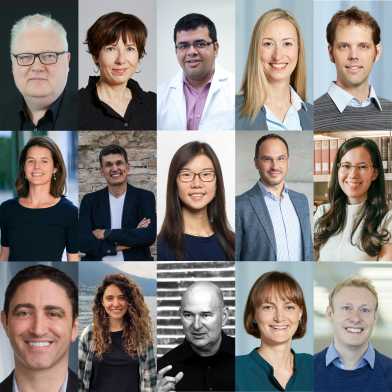
At its meeting of 18 and 19 September 2024 and upon application of Joël Mesot, President of ETH Zurich, the ETH Board appointed fifteen professors. The Board also awarded the title of "Professor of Practice" once.
Preventing cancer cells from colonising the liver
News
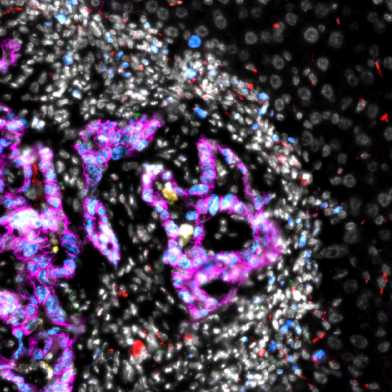
Researchers at ETH Zurich have uncovered how colorectal cancer cells colonise the liver. Their findings could open up new ways to suppress this process in the future.
Six professors appointed
News
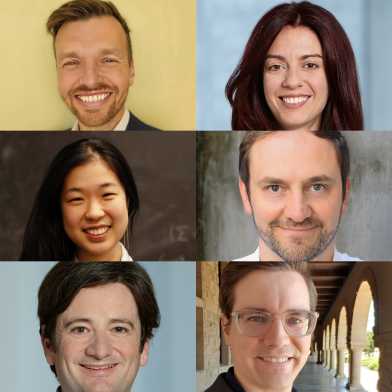
At its meeting of 11 and 12 July 2024 and upon application of Joël Mesot, President of ETH Zurich, the ETH Board appointed six professors. The Board also awarded the title of "Professor" two times and the title of "Professor of Practice" once.
Twelve professors appointed
News
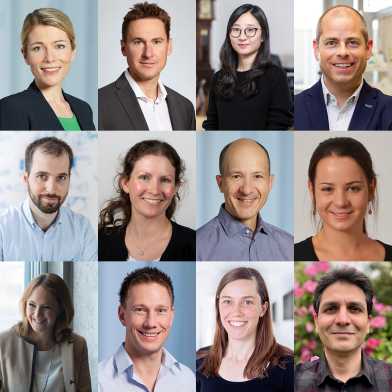
At its meeting of 22 and 23 May 2024 and upon application of Joël Mesot, President of ETH Zurich, the ETH Board appointed twelve professors. The Board also awarded the title of "Professor" four times and the title of "Professor of Practice" three times.
A new direction for cancer research
Globe magazine
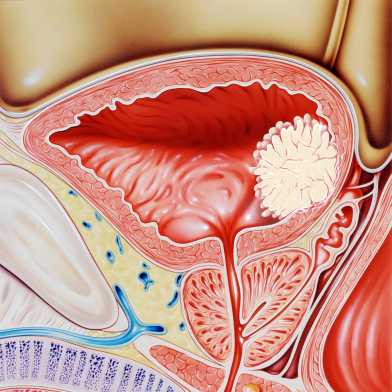
In collaboration with University Hospital Basel, researchers from ETH are investigating the early stages of bladder cancer. Their findings show that future research should also focus on mechanical changes in tumour tissue.
Mini-organs with big potential
Globe magazine
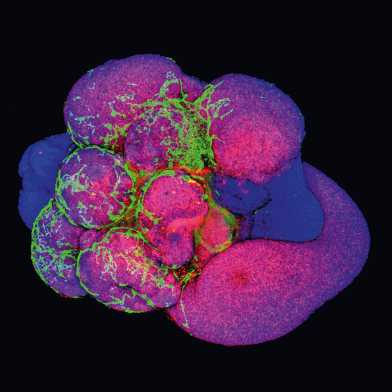
Organoids grown from human stem cells can help provide answers to important medical questions. In a partnership that looks set to profit both sides, ETH professor Barbara Treutlein has teamed up with pharma giant Roche to advance research in this area.
Combatting infant malnutrition
Globe magazine
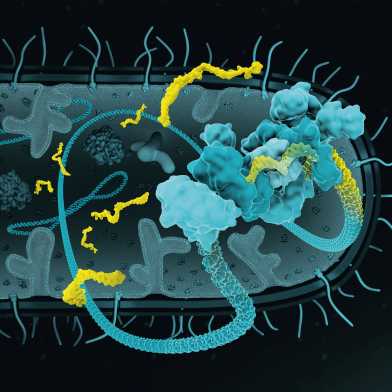
Bioengineer Randall Platt engineers bacteria that can assess the state of our guts. It is hoped this non-invasive technique could eventually be used to develop more effective interventions against malnutrition among children in the Global South.
Designed for bold visions
Globe magazine
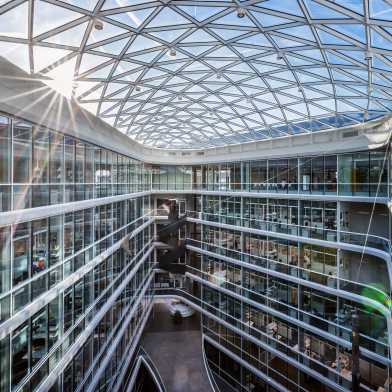
The idea of ETH Zurich establishing a Department of Biosystems in Basel once seemed unachievable. Today, the department occupies a new building where the dividing lines between biology, computer science and engineering are blurred – and researchers increasingly focus on medical applications
Cutting-edge research from Basel
- Globe magazine
- Homehero
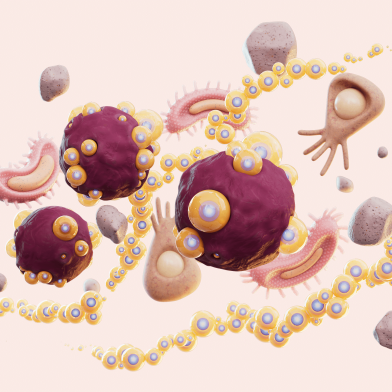
From new tests and therapies to the fundamental principles of biology: five compelling examples of the benefits of new bioengineering technologies.
Twelve professors appointed
News
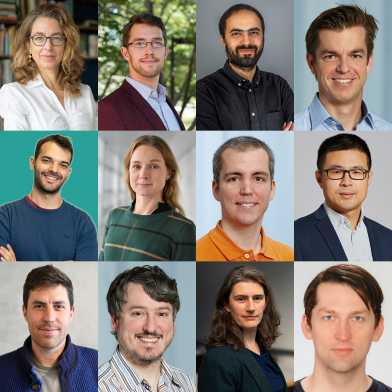
At its meeting of 6 and 7 December 2023 and upon application of Joël Mesot, President of ETH Zurich, the ETH Board appointed twelve professors and awarded the title "Professor of Practice" once.
Two ERC Synergy Grants for ETH Zurich researchers
News
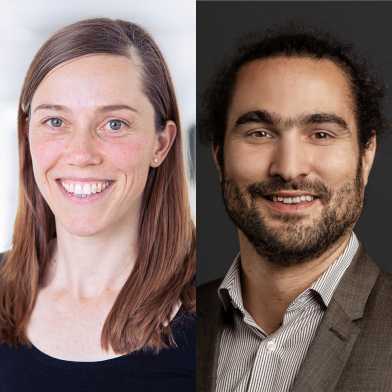
ERC Synergy Grants have been awarded to Barbara Treutlein from the Department of Biosystems Science and Engineering and Nicolas Noiray from the Department of Mechanical and Process Engineering, together with their European partners.
Cloëtta Jubilee prize awarded to two ETH professors in Basel
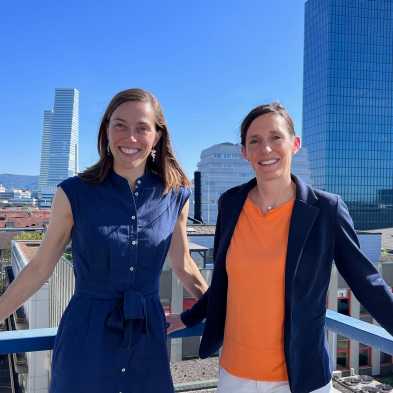
Professors Tanja Stadler and Barbara Treutlein awarded the Cloëtta Jubilee Prize for their outstanding achievements in biomedical and developmental biology research.
Genetically modifying individual cells in animals
News
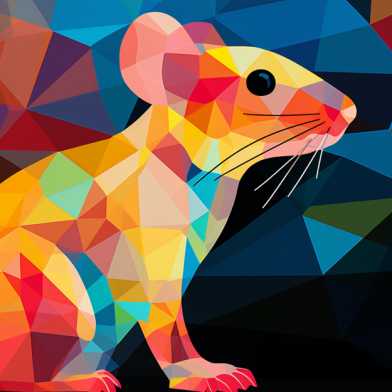
Researchers at ETH Zurich have developed a method that lets them genetically modify each cell differently in animals. This allows them to study in a single experiment what used to require many animal experiments. Using the new method, the researchers have discovered genes that are relevant for a severe rare genetic disorder.
A human model for autism
News

The CRISPR-Cas gene scissors enable researchers to study the genetic and cellular causes of autism in the lab – directly on human tissue.
Cells with an ear for music release insulin
News
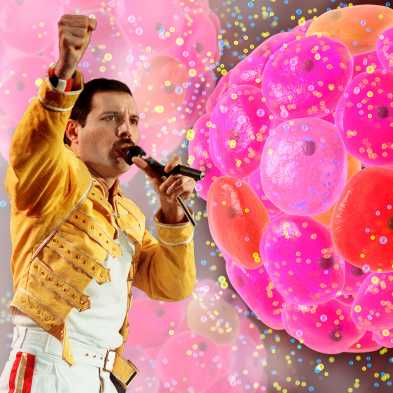
"We will rock you": ETH Zurich researchers are developing a gene switch that triggers insulin release in designer cells by playing certain rock and pop songs.
Advanced Grants for systems biologist and computer scientist
News
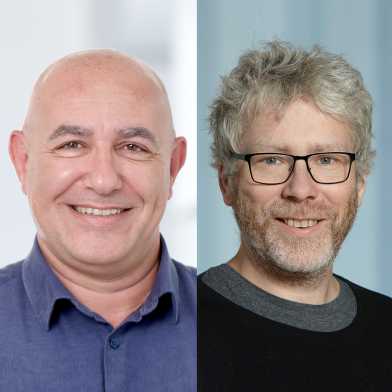
ETH Zurich professors Mustafa Khammash and Marc Pollefeys are each recipients of a prestigious Advanced Grant currently awarded by the Swiss National Science Foundation, rather than the European Research Council.
Working together to train and empower the next generation of biomedical researchers
News
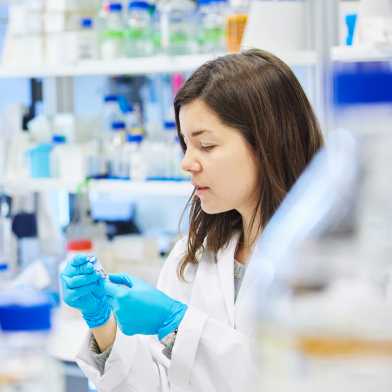
ETH Zurich and Roche are joining forces in Basel to advance the development of new methods that facilitate the search for medicines. Together, they will train specialists for the biomedical challenges of our time.
Detailed image of the human retina
News
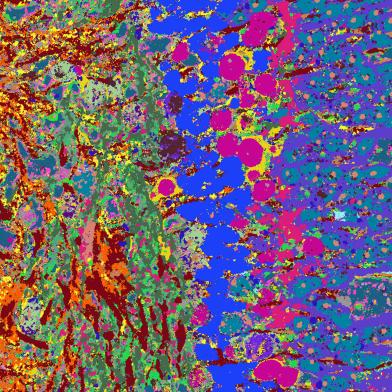
Researchers from Basel and Zurich are creating a high-resolution atlas that depicts the development of the human retina. One technique they use is a new method that allows them to visualise more than 50 proteins simultaneously.
What previous bird flu outbreaks teach us
News

Researchers at ETH Zurich have analysed the bird flu epidemic caused by the H7N9 strain that affected China from 2013 to 2017. New phylogenetic trees will help to improve monitoring of future bird flu epidemics.
Spark Award for new corrosion protection
- News
- Homepage
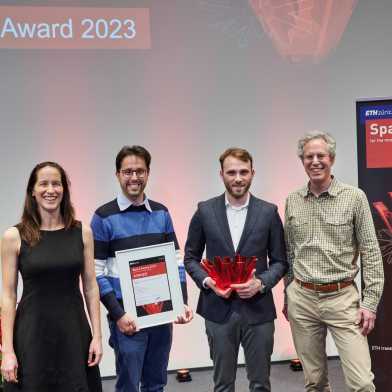
More effective, reusable and self-repairing: a new kind of corrosion protection developed by the ETH researchers Marco D'Elia, Walter Caseri und Markus Niederberger has been honoured with ETH Zurich’s Spark Award 2023. The innovation offers excellent market potential and could significantly slow down the deterioration of buildings and vehicles.
Immune-cell booster for cancer patients
- News
- Homepage
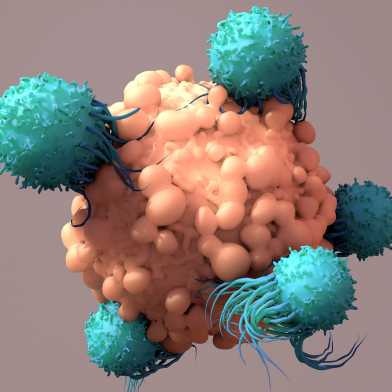
Cancer patients might one day benefit from being administered immune cells from healthy donors. But as things stand, receiving donor cells can cause severe or even fatal immune reactions. A researcher at ETH Zurich has now developed a technology that avoids these.
Achieving a better understanding of how the blood-brain barrier works
- News
- Homepage
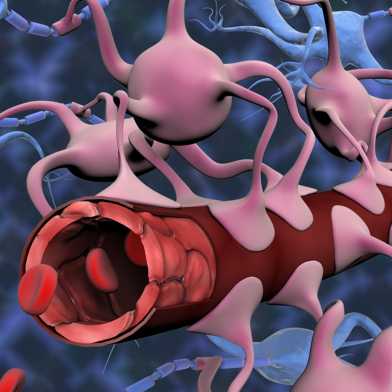
Up to now, the use of models to research the barrier that separates the circulatory from the nervous system has proven to be either limited or extremely complicated. Researchers at ETH Zurich have developed a more realistic model that can also be used to better explore new treatments for brain tumours.
These are the ETH Zurich researchers cited most often
News
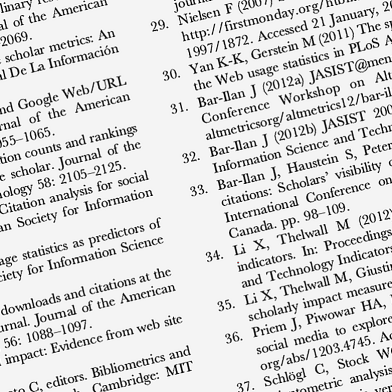
On the current list of Highly Cited Researchers, 21 have a connection to ETH Zurich. Four of these appear on the list for the first time.
Mapping human brain development
News
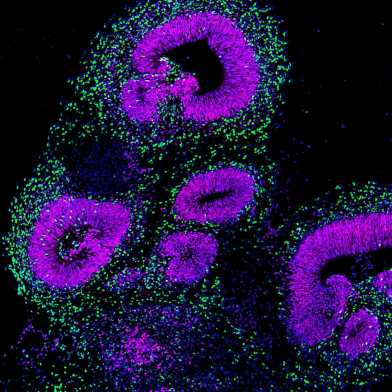
Researchers at ETH Zurich are growing human brain-like tissue from stem cells and are then mapping the cell types that occur in different brain regions and the genes that regulate their development.
We must face the ethical challenges of engineering life
- News
- Zukunftsblog

Scientists have a duty to initiate a dialogue with the public on cellular engineering, says Daniel Müller. The discussion must be held now – before complex engineered cellular systems are ready for widespread use in humans.
Preparing for future coronavirus variants using artificial intelligence
News
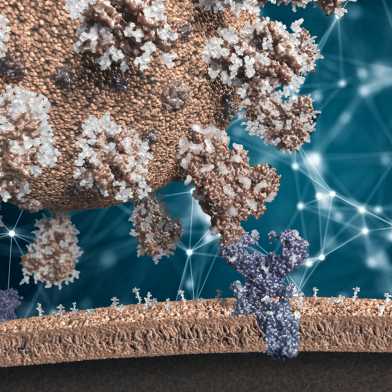
Researchers at ETH Zurich have developed a method to explore the possibilities of how the pandemic virus could evolve. Thanks to their work, it may be possible to develop antibody therapies and vaccines that are more likely to be effective also against future viral variants.
Tanja Stadler to receive Rössler Prize
News
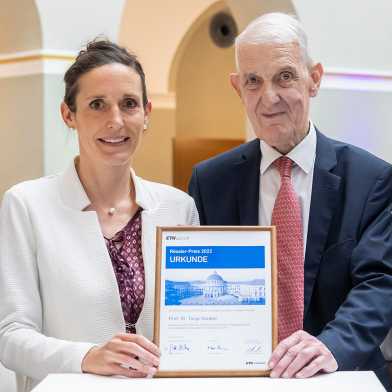
Mathematician and biostatistician Tanja Stadler will receive this year’s Rössler Prize for her achievements. Worth 200,000 Swiss francs, it is ETH Zurich’s most generous research award.
Precursor of spine and brain forms passively
News
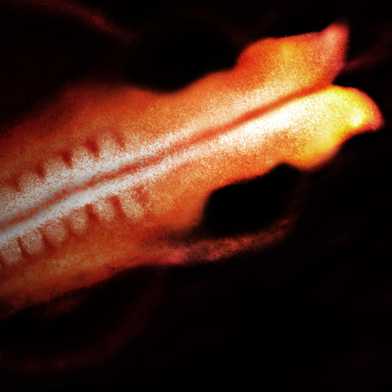
Researchers at ETH Zurich have conducted a detailed study of neurulation – how the neural tube forms during embryonic development. They conclude that this happens less actively than previously thought. This also has implications for understanding defects such as spina bifida.
Bacteria with recording function capture gut health status
News
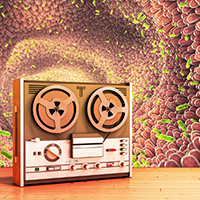
Researchers from ETH Zurich, University Hospital of Bern and the University of Bern have equipped gut bacteria with data logger functionality as a way of monitoring which genes are active in the bacteria. These microorganisms could one day offer a noninvasive means of diagnosing disease or assessing the impact of a diet on health.
Individual funding is history
Press release

Four researchers from ETH Zurich have been awarded a Consolidator Grant from the European Research Council (ERC). Since Switzerland is no longer fully associated, they will receive the approximately eight million francs in research funding from the State Secretariat for Education, Research and Innovation (SERI).
AI offers a faster way to predict antibiotic resistance
News

A study under co-leadership of the ETH Zurich has shown that computer algorithms can determine antimicrobial resistance of bacteria faster than previous methods. This could help treat serious infections more efficiently in the future.
Talent and team spirit at the heart of artificial intelligence
News
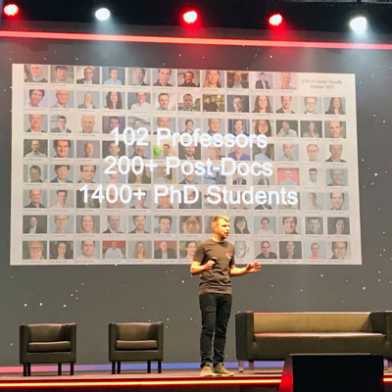
Collaboration between talented members of multidisciplinary teams provides the best foundation for innovative, useful and trustworthy applications of artificial intelligence. This approach has been demonstrated at a joint event by ETH Entrepreneur Club and the ETH AI Center.
Spark Award for sustainable composites
News
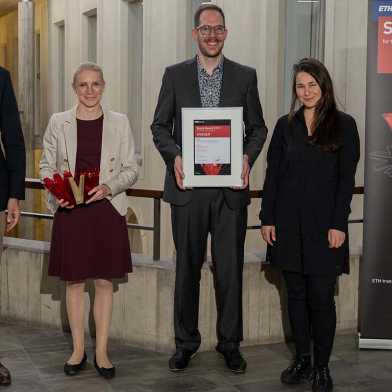
Load-bearing, lightweight and now also recyclable: researchers led by Professor Paolo Ermanni were presented with the Spark Award in recognition of an innovative process for production of sustainable composite materials. ETH Zurich awarded the prize to their promising invention, with this year marking the tenth time the award has been given.
Independent task force with new leader
News
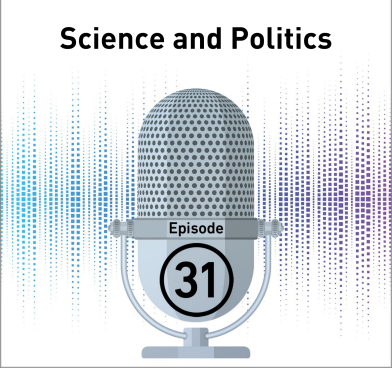
Martin Ackermann steps down as head of the Swiss National Covid-19 Science Task Force. Tanja Stadler succeeds him in this responsible position.
“Wastewater provides representative data on viral strains”
News
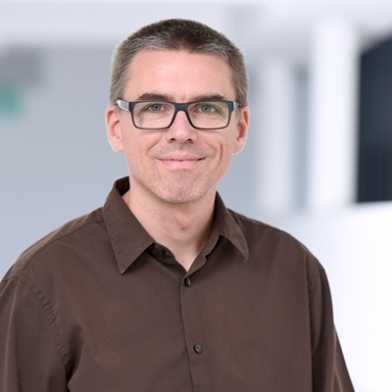
Niko Beerenwinkel, a Professor at the Department of Biosystems Science and Engineering at ETH Zurich in Basel, is working with colleagues from other research institutions to examine wastewater for traces of the coronavirus. He has detected the Delta variant in five out of six Swiss wastewater treatment plants examined, including ones in Zurich and Bern. Recently he spoke with ETH News.
“The term ‘artificial’ is often associated with risk”
Globe magazine

Is natural always good and artificial always bad? We talked to psychologist Angela Bearth and biotechnologist Sven Panke about science, scepticism, misunderstandings and how language influences the way we think.
Controlling insulin production with a smartwatch
News

ETH Zurich researchers have developed a gene switch that can be operated with the green LED light emitted by commercial smartwatches. This revolutionary approach could be used to treat diabetes in the future.
We need to deal with the uncertainties in statistics
Zukunftsblog

We look for certainty in uncertain times. But that is not something statistics can necessarily provide. Tanja Stadler explains why it is important to consider statistical uncertainty through describing the COVID-19 R value estimation which she performs for Switzerland.
Cells as computers
News

Scientists at ETH Zurich are working to develop information-processing switching systems in biological cells. Now, for the first time, they have developed an OR switch in human cells that reacts to different signals.
Detailed tumour profiling
News
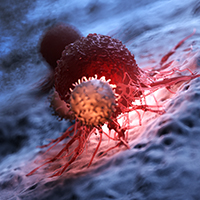
As part of a clinical study involving patients from the University Hospitals in Zurich and Basel, researchers are conducting a thorough and highly precise investigation into the molecular and functional properties of tumours. Their goal is to help physicians to better determine which treatment will best match every patient’s cancer and thus be most effective.
Seven ERC Consolidator Grants for ETH Zurich
Press release

Seven ETH researchers can look forward to generous funding for their projects: the European Research Council (ERC) has approved a total amount of around 15 million Swiss francs.
Art in Construction reflects on research
News
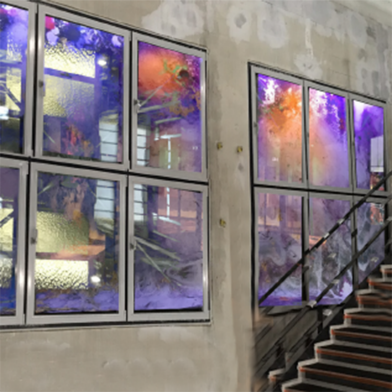
ETH Zurich supports art in construction, and, as part of a project competition, has selected art projects by Maya Rochat and Yves Netzhammer that take an innovative approach to reflecting on teaching and research in the two ETH buildings BSS and ML-FHK. Implementation is scheduled to start at the beginning of 2021.
Spread of a novel SARS-CoV-2 variant across Europe in summer 2020
News
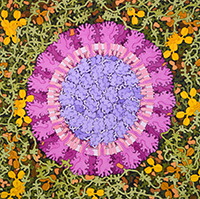
A research team led by the University of Basel and ETH Zurich has identified a novel SARS-CoV-2 variant that has spread widely across Europe in recent months, according to an un-peer-reviewed preprint released this week
New centre for AI research
Press release

ETH Zurich is opening a new research centre for artificial intelligence. A core team of initially 29 professorships, a new executive director and a Fellowship programme aim to promote interdisciplinary research into this key technology.
Cells on the run
News
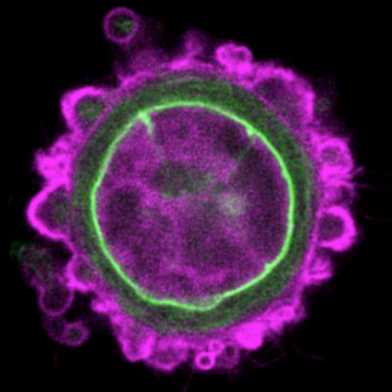
Many cells in the body must pass through tissue, which sometimes requires them to get out of tight corners. An international research team co-led by ETH Zurich has now examined how cells recognise and escape from such bottlenecks. Among the results of the team’s work are new pointers for how to improve immunotherapy.
Recording thousands of nerve cell impulses at high resolution
News
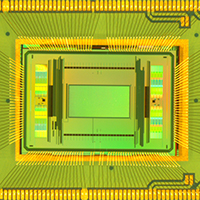
ETH researchers have developed a new generation of microelectrode-array chips for measuring nerve impulses, enabling studies of how thousands of nerve cells interact with each other.
Foundations for trustworthy artificial intelligence
News

Leading AI researchers from 30 top institutions across Europe are joining forces to form the European AI network ELLIS. Today, it celebrates its launch, with ETH Zurich as a founding member. The ETH Zurich ELLIS Unit is set on establishing the foundations for reliable and trustworthy artificial intelligence.
Mapping the depths of the genome
Globe magazine
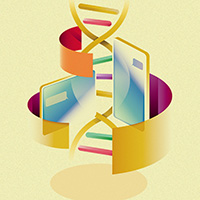
Using algorithms to analyse the whole-genome sequence of a tumour can make treatment more successful – and can even help determine how cells become cancerous.
Let there be light and the process stops
News
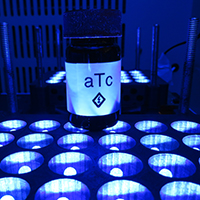
ETH researchers have discovered that they can use light-sensitive molecules to switch genetic networks on and off as required. Their finding gives rise to an easy method for dynamically controlling biotechnological substance production.
Binding sites for protein-making machinery
News
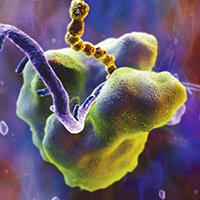
ETH Zurich researchers can predict how tightly a cell’s protein synthesis machinery will bind to RNA sequences – even when dealing with many billions of different RNA sequences. This binding plays a key role in determining how much of a specific protein is produced. The scientists are developing their prediction model using a combination of synthetic biology experiments and machine learning algorithms.
Using electrical stimulus to regulate genes
- News
- Category
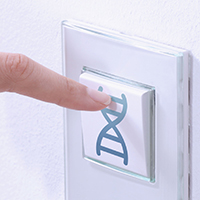
A team of researchers led by ETH professor Martin Fussenegger has succeeded in using an electric current to directly control gene expression for the first time. Their work provides the basis for medical implants that can be switched on and off using electronic devices outside the body.
Basel research centre supports ETH coronavirus research

The Basel Botnar Research Centre for Child Health is funding five research projects at ETH Zurich dedicated to the diagnosis and treatment of COVID-19, the disease caused by the coronavirus.
Why does COVID-19 affect old people more than young people?
Zukunftsblog

As we age, our lung tissue becomes stiffer – and this is a phenomenon that SARS-CoV-2 may be exploiting. Caroline Uhler and G. V. Shivashankar outline their hypothesis.
Research into drugs and vaccines to combat COVID-19
News

As the world anxiously awaits a remedy for the novel coronavirus, ETH Zurich is also involved in the search for active substances and vaccines. This overview sets out the therapeutic approaches pursued by ETH researchers.
Analyses for getting to grips with the pandemic
News
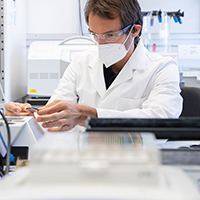
ETH researchers are developing and improving methods to detect the pandemic virus or virus-specific antibodies. With the help of such tests, the scientists are also investigating the details of how the pathogen is spreading. A project overview.
Podcast with Tanja Stadler
News

To learn more about how fast SARS-CoV-2 is spreading, the genome of the virus is key.
Measures are having an impact
News

The “lockdown light” decreed by the Swiss Federal Council has led to each person infected with Sars-CoV-2 going on to infect only one person on average instead of two or three prior to the lockdown, as calculations by a team from ETH Zurich have shown. This means the situation is stable, but the epidemic has yet to be contained.
Circulatory failure is predictable
Press release
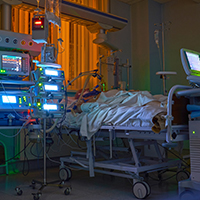
Researchers at ETH Zurich and Bern University Hospital have developed a method for predicting circulatory failure in patients in intensive care units – enabling clinicians to intervene at an early stage. Their approach uses machine learning methods to evaluate an extensive body of patient data.
Calculating the beginnings of the coronavirus epidemic
News
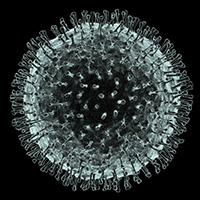
Analyses of publicly available genome data provide clues to the beginnings of the coronavirus epidemic in China. Researchers from the Department of Biosystems Science and Engineering at ETH Zurich in Basel used a statistical model they had developed in recent years.
Randall Platt receives the ETH Latsis Prize
News
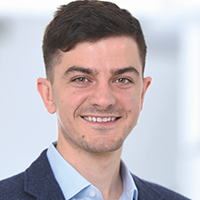
As part of ETH Day celebrations tomorrow, Randall Platt will be awarded the ETH Zurich Latsis Prize. The professor in the Department of Biosystems Science and Engineering at ETH Zurich in Basel has carried out exceptional work in the field of genome engineering – an achievement made all the more impressive given his young age.
Nine new professors appointed
News

Energy systems, cryptography and computer-aided simulation; interactions between people, animals and landscape, investigation of biosystems from the human brain to the nanometer scale: the incoming professors work in a wide range of cutting-edge research fields. Three ETH professors will soon leave the university.
ERC Starting Grants: new record for ETH
Press release
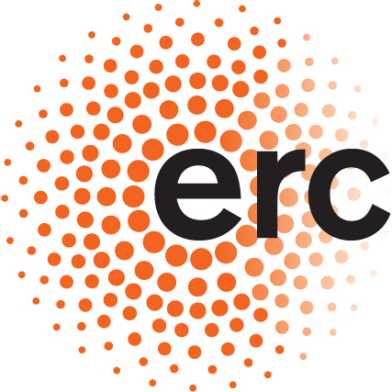
Fifteen talented young researchers from ETH Zurich are each to receive an ERC Starting Grant, which is more than for any year previously. This will result in a total of 23 million euros in European funding for ETH.
Revolutionising the CRISPR method
News

Researchers at ETH Zurich have refined the famous CRISPR-Cas method. Now, for the very first time, it is possible to modify dozens, if not hundreds, of genes in a cell simultaneously.
Making systems robust
News

Both nature and technology rely on integral feedback mechanisms to ensure that systems resist external perturbations. ETH researchers have now used synthetic biology to design a new mechanism of this sort from scratch. For the first time, they have introduced it into a living cell as an artificial genetic regulatory network. This will be a useful tool for cell therapy in medicine and for biotechnology.
Early in vitro testing for adverse effects on embryos
News
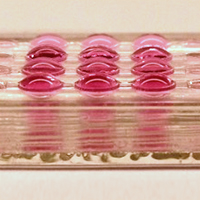
ETH researchers have combined embryonic cells and liver cells in a new cell culture test. This combination lets them detect adverse effects that new medications may have on embryos early on in the drug development process.
“There were moments when I was almost ready to give up”
News

Renato Paro came to Basel as the son of Italian immigrants. It was there that, years later, he built up the Department of Biosystems Science and Engineering (D-BSSE). He is seen as a pioneer of epigenetics. His method for determining interactions between proteins and DNA in living cells has been adopted in labs around the world.
Fleming’s method in miniature
News
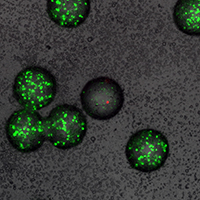
Scientists in the Department of Biosystems Science and Engineering at ETH Zurich in Basel have developed a method with which they can quickly test a very large number of molecules for antibiotic effect. With it, they have already successfully discovered new antibiotic candidates produced by microorganisms. In the future, they will use their new technology to examine soil samples and the microbiome on human skin for medically useful microorganisms.
A biosynthetic dual-core cell computer
News
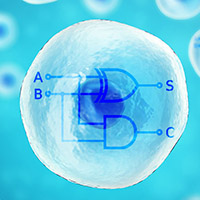
ETH researchers have integrated two CRISPR-Cas9-based core processors into human cells. This represents a huge step towards creating powerful biocomputers.
Nine new professors appointed
News
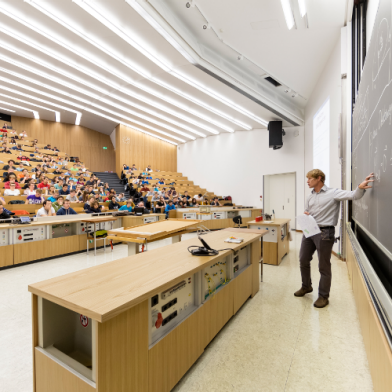
The ETH Board has appointed or promoted nine new professors, six of them working in the fields of biology and biomedicine. For the first time, these candidates were proposed by the new ETH President, Joël Mesot. They include a high proportion of women: over forty percent.
How proteins become embedded in a cell membrane
News
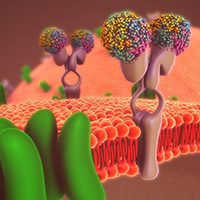
Many proteins with important biological functions are embedded in a biomembrane in the cells of humans and other living organisms. But how do they get in there in the first place? Researchers in the Department of Biosystems Science and Engineering at ETH Zurich investigated the matter.
Responsible air travel
News

ETH Zurich is fostering responsible air travel to help resolve the conflict between international research activities and climate protection. ETH units worked together to set targets for reducing flight-related CO2 emissions.
Laboratory work made easier
News
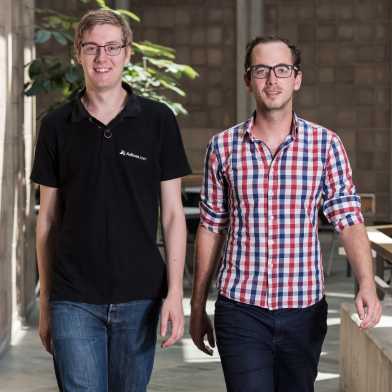
Oskari Vinko and Maximilian Schulz produce software to automate life science laboratory processes, enabling machines to take over the laborious and time-consuming work so bioscientists can focus on the bigger challenges.
Of autonomous duck taxis and a precise Mars landing
News

ETH technology that flew to Mars, rubber duckies that travelled around Duckietown in self-driving taxis and moles that warn of tumours – for ETH, 2018 was marked by innovative flair and extraordinary research. We take a look back.
Explaining differences in rates of evolution
News
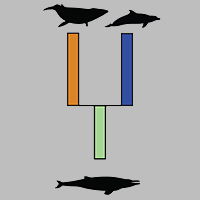
Scientists look to fossils and evolutionary trees to help determine the rate of evolution – albeit with conflicting results. A new model by ETH researchers has helped to resolve these contradictions.
Dual leadership for the Botnar Research Centre
News
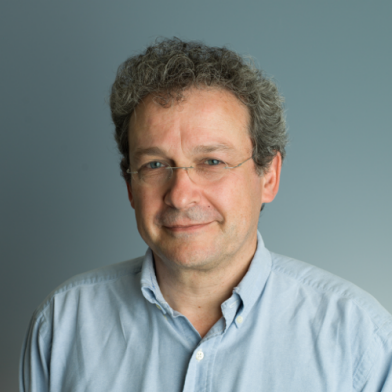
Professor Georg Holländer and Professor Sai Reddy will head the Botnar Research Centre for Child Health in Basel.
Regulating gene transcription using light
News
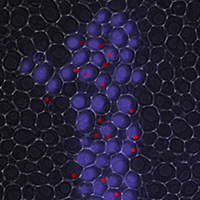
Researchers led by Mustafa Khammash have developed a new method that uses blue light to control the transcription of DNA into RNA in single cells. The technology could also be used in tissue engineering and stem cell research.
Recording device for cell history
News
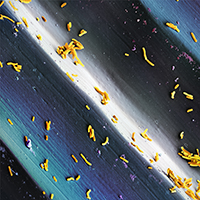
ETH researchers are using the CRISPR-Cas system to develop a novel recording mechanism: the snippets of DNA it produces can provide information about certain cellular processes. In future, this cellular memory might even be used in diagnostics.
A new home for ETH’s Department in Basel
Press release

Today ETH Zurich celebrated the laying of the foundation stone for its new building on the Schällemätteli campus in Basel. As from 2022, all the research groups at the Department of Biosystems Science and Engineering will be united under one roof, in close proximity to important partners.
Fresh energy for teaching and research
News
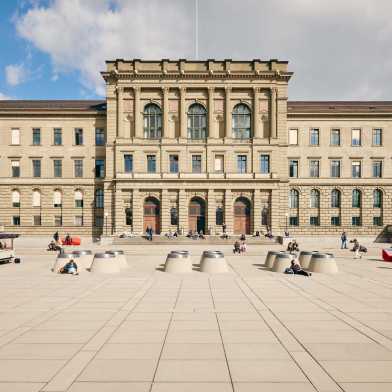
At its meeting of 4/5 July 2018 and upon application of the President of ETH Zurich, Professor Lino Guzzella, the ETH Board appointed 9 professors.
Stopping epidemics in their tracks
Zukunftsblog
Science and technology have the potential to stop future epidemics in their tracks, says Tanja Stadler. But this requires better collaboration between scientists and the authorities.
Keeping up with the quick-change artists
Globe magazine
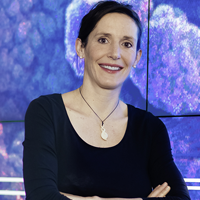
Sometimes viruses and bacteria undergo genetic changes that alter their properties and eventually make them more dangerous to humans. Tanja Stadler’s mathematical models shed light on how fast they can mutate and spread.
An artificial mole as an early warning sign
News
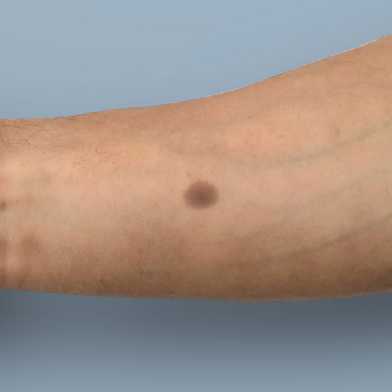
ETH researchers working with Martin Fussenegger have developed an early warning system for the four most common types of cancer. Should a tumour develop, a visible mole will appear on the skin.
A major success at the European level
Press release

Ten professors from ETH Zurich – two of them female, and eight male – have secured prestigious ERC Advanced Grants. Three of them are receiving the coveted funding for the second time.
Overestimated mutation rate
News
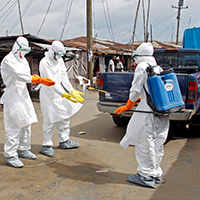
At the start of the epidemic in West Africa, the Ebola virus did not change as rapidly as thought at the time. ETH researchers explain why scientists misjudged it at the time.
Why ETH will blog more broadly
Zukunftsblog

Science has to prove its relevance to society. ETH Zurich is therefore expanding its blog activities: in future, the Zukunftsblog will cover digitalisation and health alongside the topic of sustainability.
Zipping DNA
News
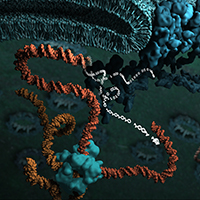
ETH researchers have developed a method that allows large amounts of genetic information to be compressed and then decompressed again in cells. This could aid in the development of new therapies.
Engineering non-immune cells to kill cancer cells
News
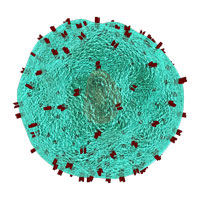
ETH researchers have reprogrammed normal human cells to create designer immune cells capable of detecting and destroying cancer cells.
How much does life weigh?
Press release
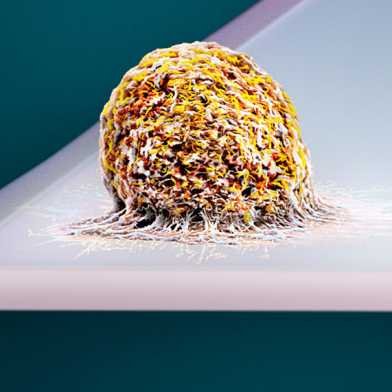
ETH researchers have developed a scale for measuring cells. It allows the weight of individual living cells, and any changes in this weight, to be determined quickly and accurately for the first time. The invention has also aroused significant interest both in and outside the field of biology.
5 professors appointed
News
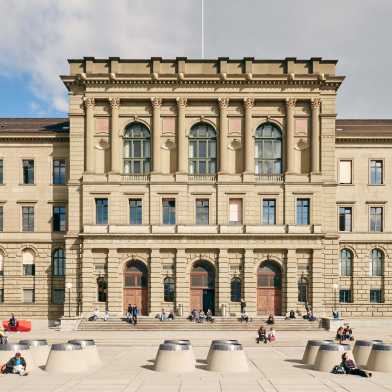
The ETH Board appointed 5 new professors upon application of ETH President Lino Guzzella.
Red fluorescence in two steps
News
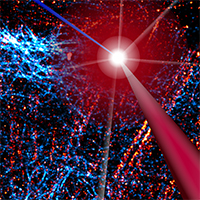
Scientists have identified the mechanism that allows fluorescent proteins to switch colour in two phases. They are thereby laying the groundwork for new applications in microscopy and functional analyses in biological research.
Medicine is awash in data
Globe magazine
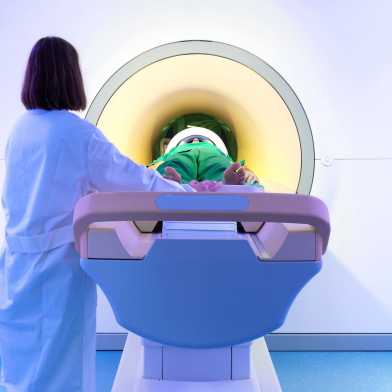
Genomics, digital patient files and real-time health surveillance – never before have we had access to so much health data. Three ETH researchers explain how they extract relevant information from this sea of data and the potential benefits for personalised medicine.
New research tools
News
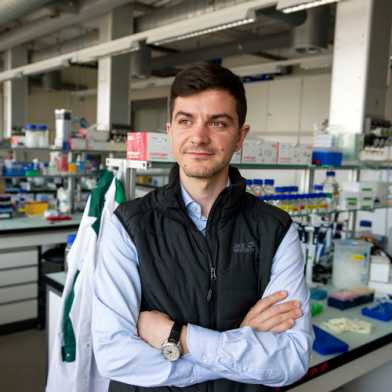
At the age of 29, biotechnologist Randall Platt has already achieved a lot: more than 1,000 research laboratories around the world use a method that he developed. But he is also the family man who recently took on a professorship at ETH.
Revealing how neurons communicate
News
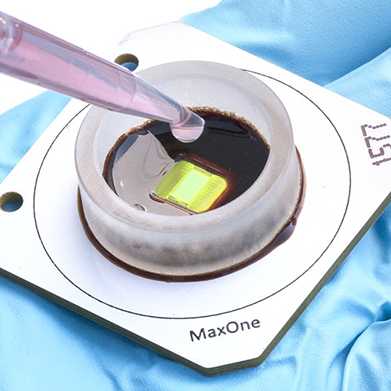
The ETH spinoff MaxWell Biosystems AG develops microelectrode platforms for electrophysiological tests on nerve cells, opening up new possibilities for pharmaceutical research. Now, the company received CHF 130,000 in starting capital from the Venture Kick initiative
15 new professors
News

The ETH Board appointed 15 new professors upon application of ETH President Lino Guzzella.
The ETH department is well established in Basel
Press release
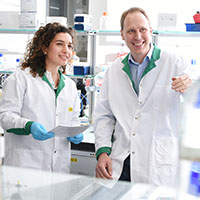
Ten years ago, ETH Zurich established its first and only department outside Zurich: the Department of Biosystems Science and Engineering in Basel. ETH will soon expand its outpost. The construction of a new department building on the Schällemätteli campus will bring it right next to the University of Basel.
Consistently among the best
Press release
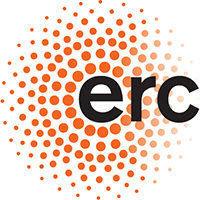
ETH researchers have received eight of the coveted Advanced Grants in the European Research Council's (ERC) latest call for proposals. For several scientists, this is their second such grant. ETH Zurich has been consistently ranked among the most successful institutions since the programme was launched ten years ago.
New professors appointed
News
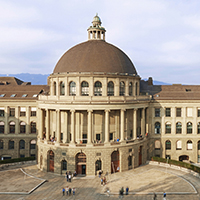
The ETH Board appointed three new professors and awarded the title of Professor to five recipients upon application of ETH President Lino Guzzella
New weapon against Diabetes
News
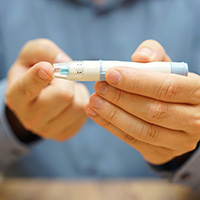
Researchers have used the simplest approach yet to produce artificial beta cells from human kidney cells. Like their natural model, the artificial cells act as both sugar sensors and insulin producers.
Award for innovative cell culture technology
News
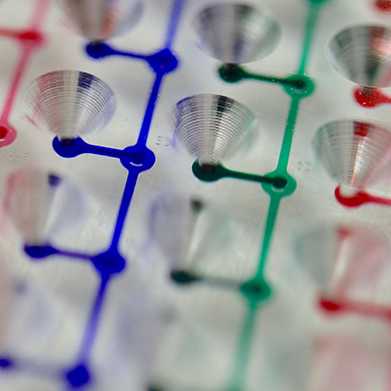
Researchers at ETH Zurich have developed a new cell culture method, which may very well enable to forgo certain tests on animals in the future. The scientists were awarded an international prize for more humane treatment of laboratory animals.